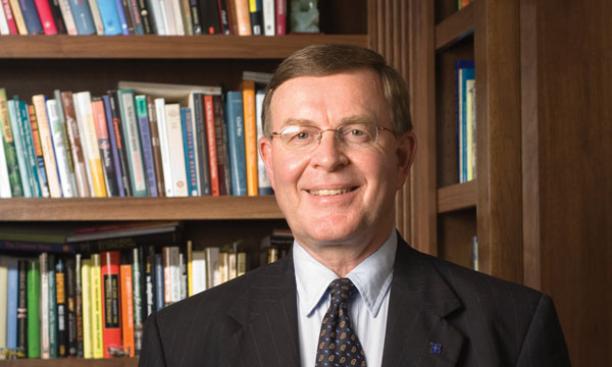


“No student shall be shut out of Berea because of poverty.
This is our resolution,” said a former president of Berea College. He meant it. The school, in Berea, Ky., has offered full-tuition scholarships to all its students since the late 19th century, says the institution’s current president, Larry Shinn *72. The 1,500 students, all of whom have limited economic means and most of whom are from surrounding Appalachia, are all required to work in order to pay for the rest of their educational expenses, such as books and housing. Endow-ment earnings and annual gifts fund the scholarships and most of operations, says Shinn, with the rest coming from federal and state grants.
Shinn says many of the students wouldn’t be in a high-quality college at all if there weren’t a Berea. Between 60 and 70 percent are first-generation college students. And yet, about half go on to graduate schools, and Berea’s graduates have won prestigious scholarships and fellowships — and for one, the Nobel Prize in chemistry.
The problem of drawing low-income students to higher education goes far beyond offering a free education. “The best way is to reach into poor communities and provide assistance starting at the mid-elementary years at the latest,” Shinn says. (Until 1968, Berea also included grades one through 12.) Through a federal program called GEAR UP, Berea works with local students, teachers, parent groups, and local agencies to reach out and help prepare kids for the possibility of college — not just at Berea. “We’re trying to build a skills base for postsecondary education for these students — our goal is not to simply feed our own system,” he says.
It’s not that Shinn criticizes the recent financial-aid changes by the elite colleges. But because their admissions programs are still elite by definition, they won’t have much impact on the kids he worries about most — the ones whose backgrounds haven’t prepared them for any kind of higher education at all. “How are we in America preparing to educate those students?” he wonders. “Those are the students we are preparing for college — including Berea — in our outreach programs.”
